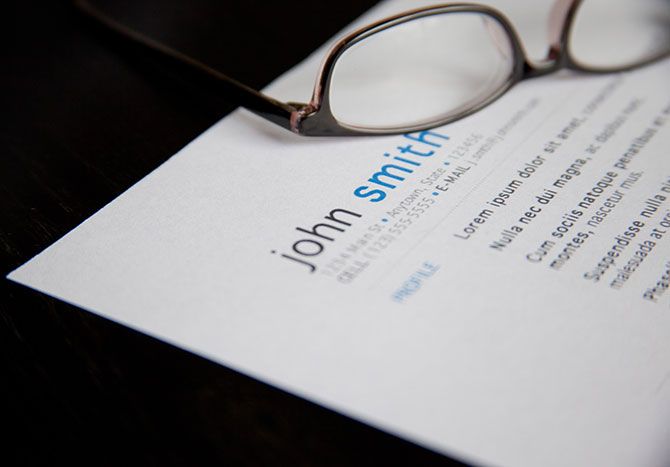Your CV is your messenger. Be honest, specific and keep it error-free.

Your resume is a statement you make about yourself.
Naturally, it's vital that you get it right. Your potential employer, who is at least five years ahead of you in experience, may have come across a lot of resumes in his time as a recruiter.
Therefore, they know what to expect from a fresher resume from the way they are written, their objective, the choice of font, the grammar, the alignment of the text and so on.
Therefore, someone who has got these basics right stands a greater chance of landing an interview compared to someone who treated their resume like doodling paper.
Here are a few tips to help you build that perfect resume which, if followed correctly, can make a positive impression on your potential employer.
1. Sharpen your objective
Candidates, even experienced ones, often commit the cardinal sin of mass while drafting their resumes.
While this technique may save time, it can thwart your chances of landing the right job, because your offerings may not always match the requirements of employers.
It goes without saying that all employers are looking for a hard-working and honest employee, but some corporates make their requirements even more specific.
If you have not done your homework on the companies you are applying at, chances are that yours might fall off the radar. So do your research and spend a little extra time to make your resume company-specific.
2. Be honest
Honesty is the best policy when it comes to writing resumes. If you attempt to create a larger-than-life image of yourself, it will surely surprise the employer, and not in a good way.
Once they meet you and get to know of the exaggerations you made in your resume, all chances of you being hired will be lost.
They may also end up warning other potential employers about you.
3. Proofread your resume
If you are not a grammar Nazi, then get one to check your resume for you before sending it out.
Spelling errors and grammatical mistakes are a complete turn-off and will result in resume landing inside a shredder.
It also reflects that you are not serious enough about your career to care about the first document which is going to greatly impact your professional life.
4. Research
This simple 8-letter word can do wonders to your resume. Read up on current resume trends and what is doing rounds in your specific industry.
Just type 'resume samples' on Google, and you'll find an overwhelming variety of templates to choose from. Pick out one that's simple, neat and potent in its communication. Then, use it to highlight your strengths.
5. Stick to a structure
Structure is the key ingredient of a perfect resume. Like all good stories, a resume, too, has a beginning, a middle and an end. Below, we'll list out what each of these sections should contain.
The Beginning
- Your name, address and contact details
- A crisp, yet strong objective that encapsulates what you aim to achieve at the company
The Middle
- Your educational details
- Your work experience. It will work in your favour to attach names and contact details of at least 3 references.
The End
- Your skill set. Listing those that will work in the favour of the company can prove beneficial.
- Your hobbies. This list is optional. But if you choose to add it, refrain from commonly used ones like 'listening to music', 'watching TV' and the like.
Take your resume and your resume writing skills very seriously, because your employer certainly will.
Look at it as your messenger. If the messenger messed up, wouldn't you have to suffer one way or the other?
Lead image used for representational purposes only. Image: Flazingo Photos/Creative Commons











